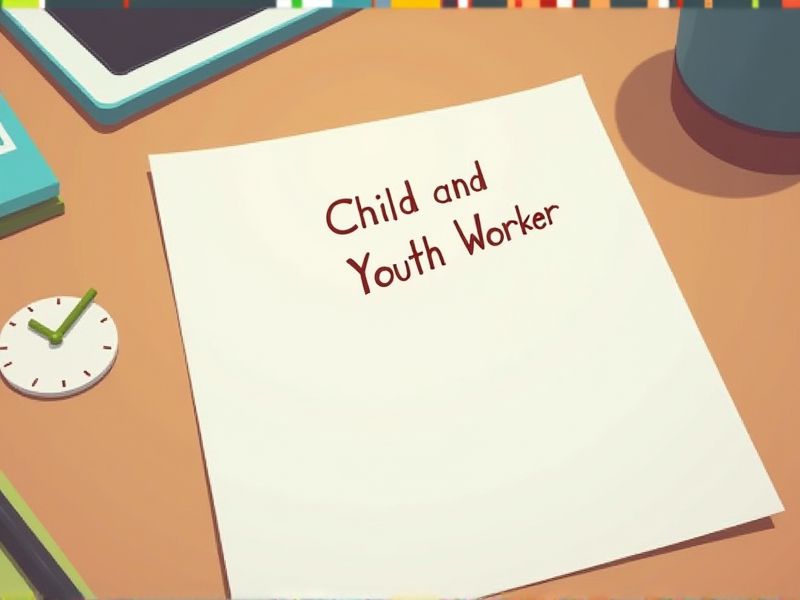
Child and Youth Workers play a crucial role in supporting the development and well-being of young individuals, necessitating certifications that validate their expertise and preparedness to handle various challenges. Certain certifications provide specialized training that enhances their ability to address mental health issues, behavioral challenges, and educational needs effectively. By attaining these credentials, professionals can ensure a safer and more supportive environment for children and youth, gaining the trust of both employing organizations and the communities they serve. Consider obtaining the following certifications that may be essential for a career as a Child and Youth Worker.
CPR and First Aid Certification for Infants and Children
Child and youth workers often encounter emergency situations, so CPR and First Aid certification enhances their ability to respond effectively. Certification provides vital skills to address choking, injuries, and medical emergencies, potentially saving lives. Knowledge from these certifications reduces anxiety during critical incidents, leading to faster, more composed decision-making. Parents and guardians gain confidence in leaving their children in the care of certified professionals, knowing they are prepared for unforeseen situations.
Child Abuse Prevention and Identification Certification
Child Abuse Prevention and Identification Certification equips Child and Youth Workers with the necessary skills to recognize signs of abuse, thereby safeguarding vulnerable populations. The certification aids in creating a standardized approach, ensuring that all workers adhere to best practices for identifying and reporting abuse. This training fosters a safer environment for children and youth, as workers become more adept at early intervention. A certified workforce increases trust between caregivers and institutions, enhancing community confidence in child protection systems.
Mandated Reporter Training Certification
Mandated Reporter Training Certification equips Child and Youth Workers with essential knowledge to accurately identify signs of child abuse or neglect. Understanding reporting obligations and procedures enhances their ability to act swiftly, ensuring children's safety. Legal protections for reporters in many jurisdictions underscore the importance of compliance to avoid liability. Certification fosters a culture of accountability and vigilance within child protection practices.
Mental Health First Aid Youth Certification
Having a Mental Health First Aid Youth Certification equips Child and Youth Workers with the skills necessary to recognize early signs of mental health struggles in young individuals. This certification can lead to timely intervention, potentially preventing the escalation of mental health issues. Workers who are trained in youth mental health first aid are better prepared to communicate effectively and provide appropriate support to children and adolescents. Certified workers can contribute to safer and more supportive environments in educational and community settings.
Trauma-Informed Care Certification
Trauma-Informed Care Certification equips child and youth workers with specialized knowledge to recognize and address trauma-related behaviors effectively. This certification enhances their ability to create safer environments that promote healing and resilience among young individuals. It fosters trust and positive relationships by validating the experiences of children and youth affected by trauma. With this training, workers can mitigate the long-term impacts of trauma and support healthier developmental outcomes.
Positive Youth Development Certification
The Positive Youth Development Certification equips Child and Youth Workers with evidence-based strategies to foster the holistic growth and resilience of young people. This certification enhances practitioners' ability to create supportive environments that strengthen the social, emotional, and cognitive skills of youth. With this specialized training, professionals can more effectively identify potential risks and implement proactive interventions. The certification aligns with modern youth development frameworks, ensuring that workers stay informed on current trends and best practices in the field.
Special Needs Support Certification
Special Needs Support Certification equips Child and Youth Workers with specialized skills to address diverse needs of children with disabilities. With this certification, workers can implement tailored interventions that enhance developmental and educational outcomes. This training fosters an inclusive environment, ensuring all children receive equitable support. Employers often require or prefer certified individuals, which can influence hiring decisions and professional advancement.
Behavioral Intervention and Conflict Resolution Certification
Behavioral Intervention and Conflict Resolution Certification equips child and youth workers with essential skills to effectively address and de-escalate crises, fostering safer environments. It enhances their ability to understand and manage emotional and behavioral challenges faced by children and adolescents. The certification provides evidence-based strategies that improve the ability to support positive outcomes in conflicts. This specialized training increases professional competency and credibility, which is crucial for career advancement and effective practice in diverse settings.
Safe Environment Certification
Safe Environment Certification is essential for Child and Youth Workers because it verifies that they are trained to identify and prevent potential harm to children and youth. This certification fosters trust among parents, guardians, and institutions by demonstrating a commitment to the well-being and protection of young individuals. Certified workers are also better equipped to create positive developmental environments, which can lead to improved emotional and social outcomes for children. By adhering to established safety protocols, these professionals contribute to reducing incidents of abuse or neglect in child and youth services.
Crisis Intervention Certification
Crisis intervention certification equips child and youth workers with effective tools to manage and de-escalate emergencies involving children and adolescents, reducing potential harm. Proper certification ensures that these workers can recognize early signs of a crisis, fostering timely interventions and support. It enhances their ability to communicate with children and families during stressful situations, building trust and rapport. Having certified professionals in schools and community settings contributes to a safer environment, promoting mental health and well-being in young populations.
Summary
You can expect an increase in job opportunities when you, as a Child and Youth Worker, obtain certifications. Certification provides you with specialized skills, making you more attractive to employers. Employers often offer higher compensation for certified personnel, impacting your income positively. Enhanced credibility and trust in your capabilities can also lead to more meaningful interactions with the children and families you support.
